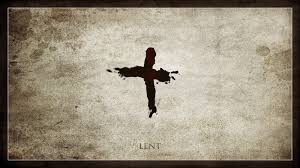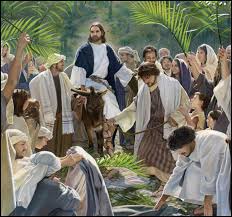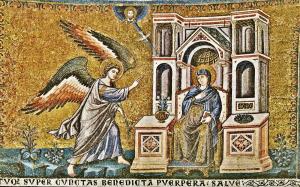“The message about the cross is foolishness to those who are perishing, but to us who are being saved it is the power of God” (1 Corinthians 1:18 NRSV).
“It is not all about me. It is not all about you. It is about something greater.” The Rev. Kate Bradtmiller, Associate Rector at St. John the Evangelist Episcopal Church in St. Paul preached these words on the Fifth Sunday of Lent. The Gospel text was the one used for Today’s Office and Mass, John 12:20-36. Here on this Tuesday in Holy Week, in addition we have these words from 1 Corinthians 1:18.
It is not complicated to read these words of St. Paul and apply them in a way that we center them on ourselves. There is a certain degree of arrogance about them, if we only take them at face value. When we take these words deeper into our prayer and reflect on them, the meaning is very different. They are not about us. They are about something greater.
The meaning of the Cross and the hope of salvation can never be limited to just us. On the Cross, Jesus gave up everything, including His relationship with His Father, only trusting in God by faith with His very last breath. What does this mean? The message of the Cross is foolishness to those who are perishing in their own self-centered carnality. This can be any one of us at any given point in time. Even in the most devout act of piety and/or so called “self-denial” for the sake of itself. The Cross is the power of God unto salvation the more we accept and let go of the reality that it is not about us. It is about something greater than ourselves. It is about something that we can only contemplate and become centered around with simple faith and trust in God. We can only catch a glimpse of it and not completely grasp it with our human senses, abilities or intellect. It must be received through the act of self-sacrifice from a purity of heart seeking only union with God for the sake of God alone. If this does not translate into a greater love of God and our neighbor, then foolishness is all it really is.
On this Holy Tuesday, may we know of the power of God’s salvation as we center on something greater than ourselves.
Amen.
Br. Anselm Philip King-Lowe, n/OSB









